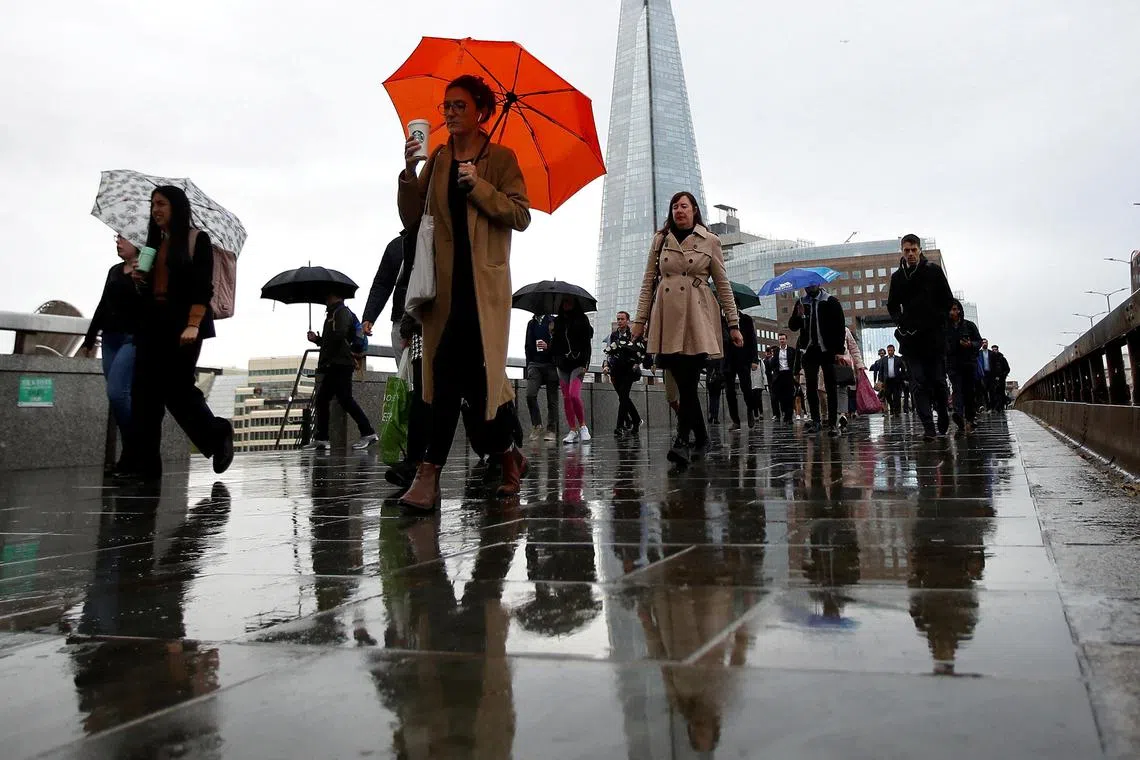What’s a fair pay raise in Britain? Here’s a formula to get 7%
Sign up now: Get ST's newsletters delivered to your inbox

The research feeds into a debate about how much employers can afford to raise wages without adding to inflation.
PHOTO: REUTERS
LONDON – British workers in the private sector can probably get 7 per cent pay raises in the next year, two Bloomberg Economics analysts concluded.
Mr Jamie Rush and Mr Dan Hanson found that a “fair” pay increase would take into account how much individual productivity increased over the past year as well as how much the employer was able to boost prices.
Their research feeds into a debate about how much employers can afford to raise wages without adding to inflation. Prime Minister Rishi Sunak’s government and the Bank of England are worried about a wage-price spiral taking hold, potentially driving inflation past the 41-year high of 11.1 per cent it reached in October.
“Every year, workers and businesses tussle over the proceeds of economic growth and inflation,” Mr Rush and Mr Hanson wrote in a note on Thursday. “When workers produce more than in the preceding year, it creates room for their employers to reward them with higher pay. Equally, if businesses can lift the prices of what they make, workers can negotiate for a share of that extra revenue.”
Their research looked pay raises in a range of industries, assessing what workers got and what they deserved based on their productivity. Those in high-contact industries like hotels and leisure got much less than they should have based on the model. Logistics and real-estate employees fared the best.
Hospitality and leisure are currently being paid as much as 10 per cent less than they deserve – a likely legacy of the pandemic. While wages in retail, finance and ICT stand roughly where they should be in the third quarter of 2022, the Bloomberg Economics research showed.
Transport workers and estate agents were found to be taking home more than they should, considering falling productivity in the transportation sector and declining property prices, Mr Rush and Mr Hanson concluded.
By contrast, rising prices in financial services, and productivity in administration and support industries, meant that workers could reasonably demand a pay increase of up to 20 per cent.
The research didn’t cover what staff in the public sector should be paid because “there is no market price” for output from sectors like the National Health Service, the research showed. That means it doesn’t apply to the discussion about what striking nurses, ambulance drivers and railway staff should get.
“A yawning gap between public and private pay settlements will exacerbate staff retention difficulties for the government,” Mr Rush and Mr Hanson wrote.
Bloomberg’s economists added that private sector workers need to start pay discussions with their employers sooner rather than later given wage settlements are likely to top out at about 7 per cent this year, according to their forecasts. Accounting for inflation, productivity and the labour market, average pay increases may only reach 5 per cent this time next year, and fall to about 2 per cent in 2024, they said. BLOOMBERG


